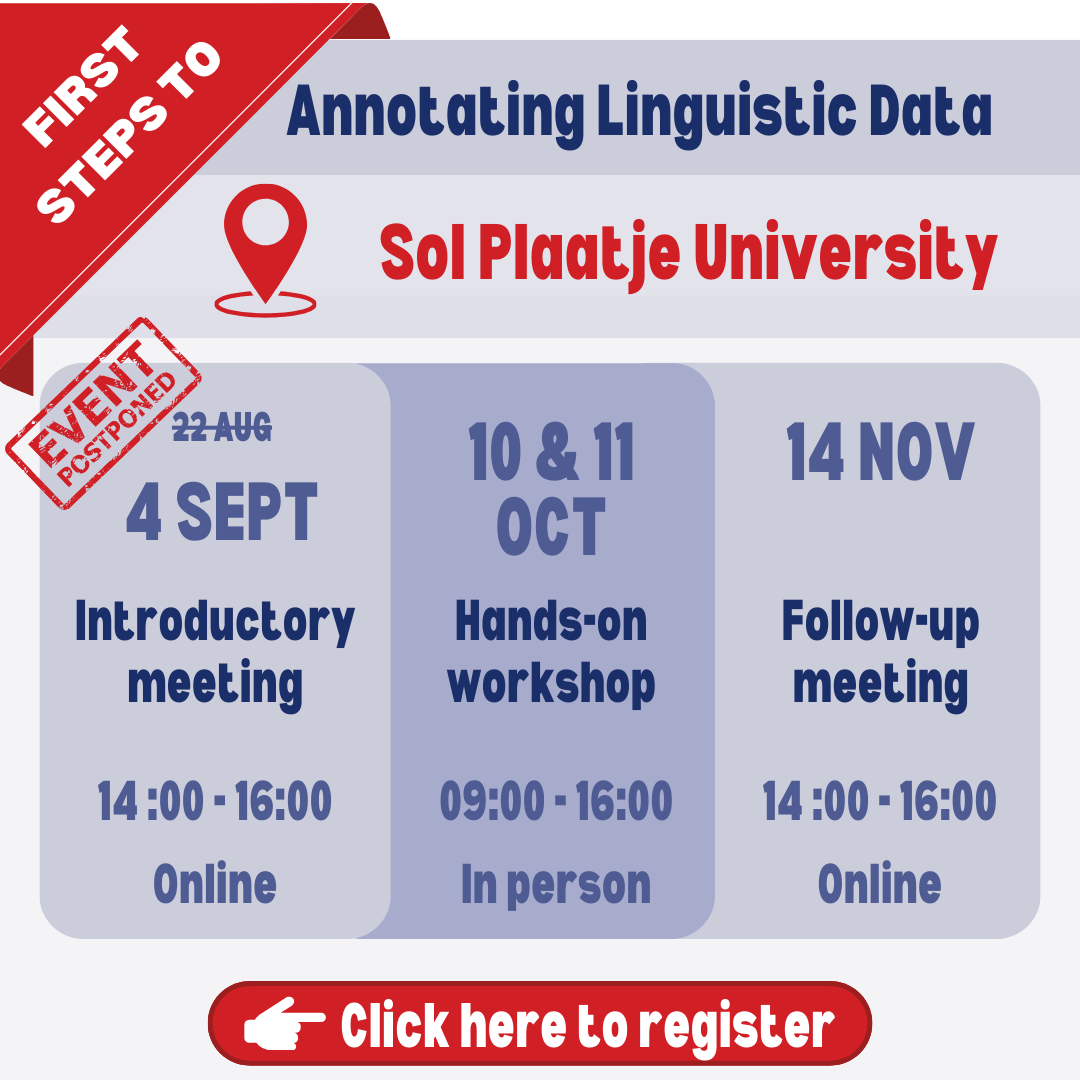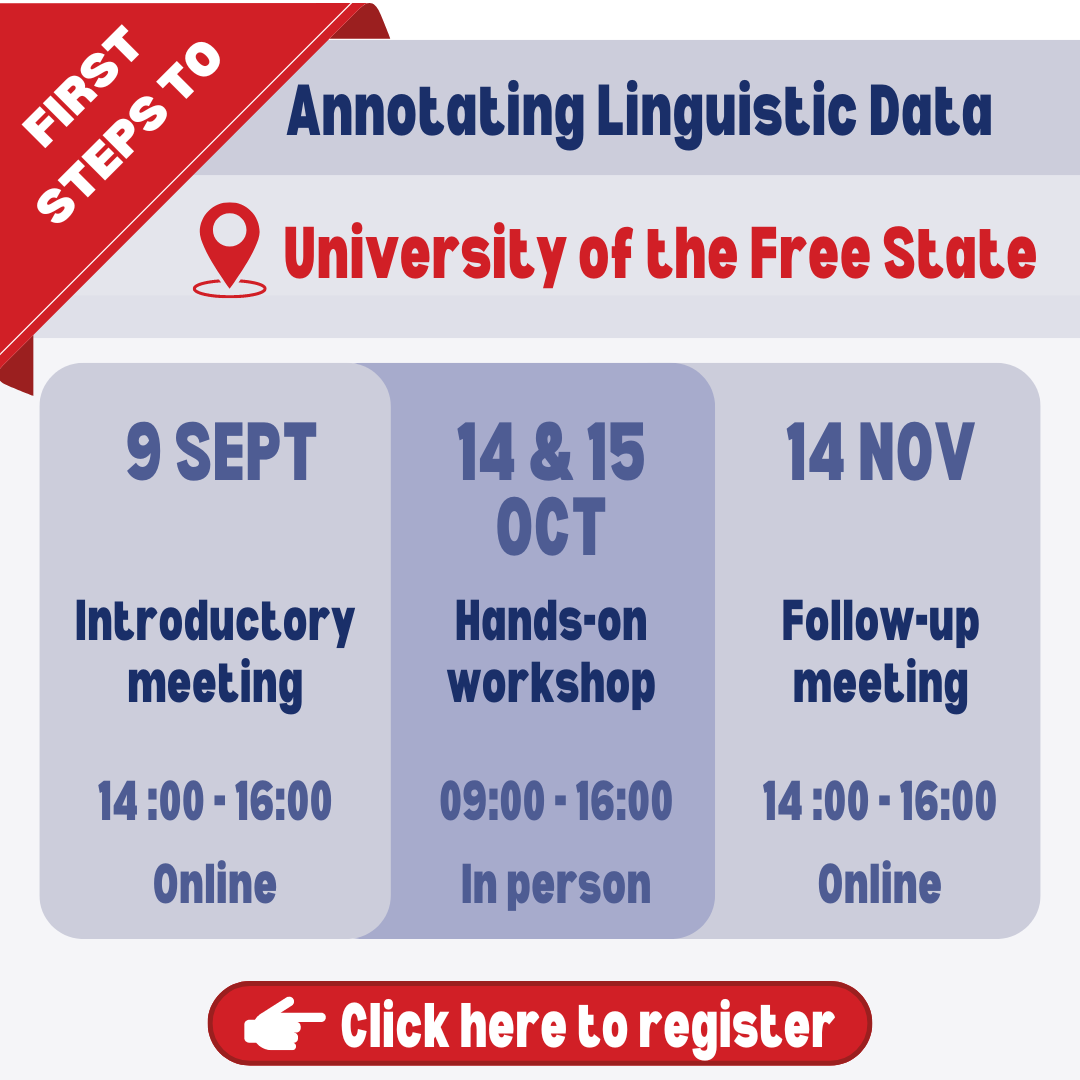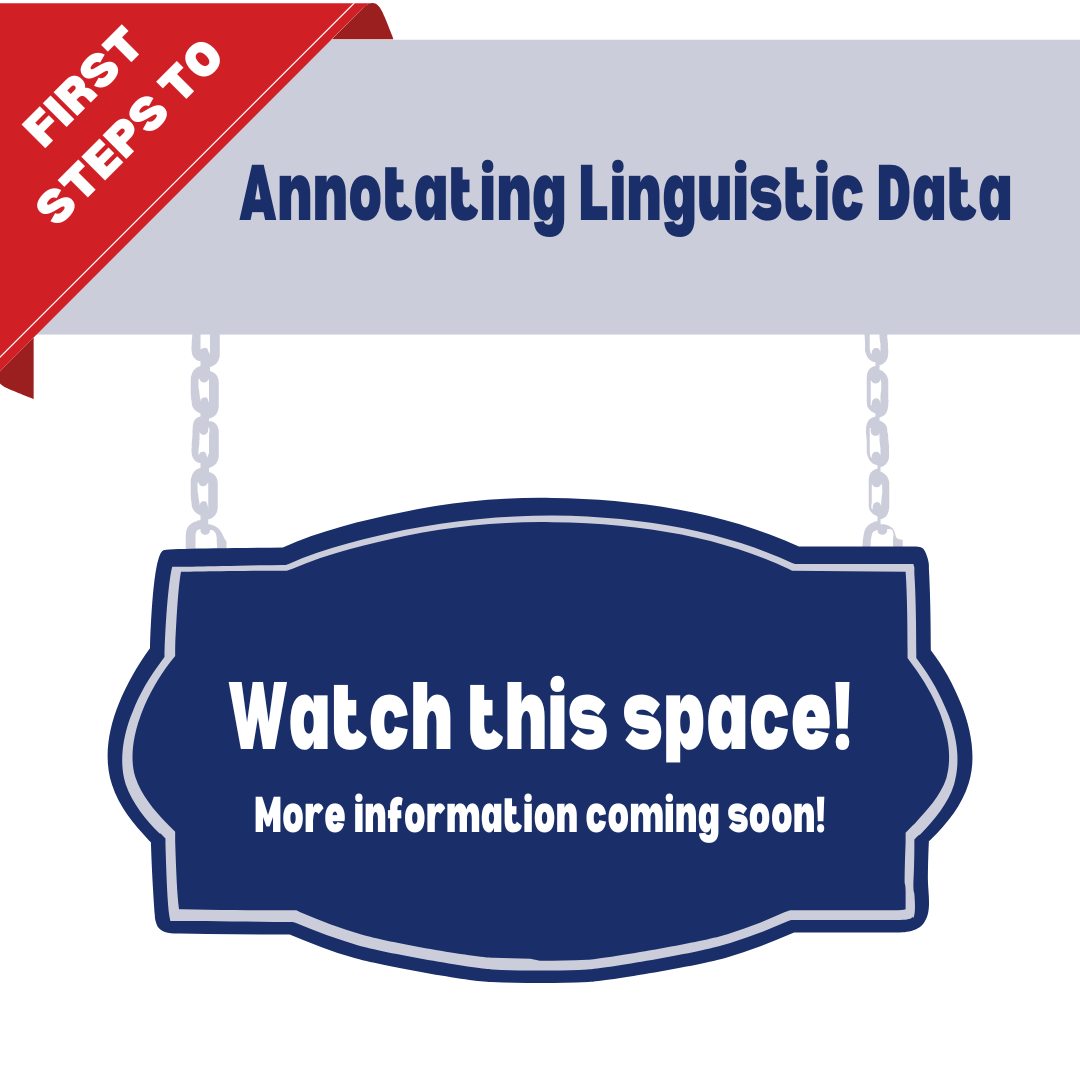Background
The Department of African Languages at Unisa hosts the development of the African Wordnet and Multilingual Linguistic and Literary Termbank. The project is funded and supported by the South African Centre for Digital Language Resources (SADiLaR) and you can read the full project description here. All the official written languages of South Africa form part of this project, with a first version of the African Wordnet for South African Sign Language being explored in the latest development phase.
In line with our aims for the current development phase, we would like to strengthen the broader Digital Humanities community by offering skills development workshops centered around the resources developed and lessons learnt in the above-mentioned project. This opportunity will consist of:
- a virtual introductory session, including introduction to a shared task to get participants involved,
- an in-person workshop over two days to further advance the skills learnt in the virtual session, and
- a virtual follow-up session to ensure that participants are ready to use the skills learnt and grow from there.
What can you expect?
Learn more about the DH community and the role of linguists/language experts in the community
Start networking in the broader DH community and become part of the community of practice;
What does the opportunity include?
Step 1: Join the virtual introduction session 💻
Participants will first attend an online (virtual) session where a general introduction and contextualization will be provided. They will also be introduced to a basic shared annotation task (using a simple Microsoft Excel spreadsheet, negating the need for training with specialized software) during this first session.
Step 2: Submit an application for the in-person event ✅
Participants will then have to submit their annotations to be invited to an in-person event at your university where the results from the shared task will be used to further populate the African Wordnet. The resulting data from the shared task will not be evaluated in any way, but simply used to encourage real interest and show commitment.
Step 3: Attend a dedicated in-person training event 🧑🏽🎓
The in-person event will be a full two-day session – one day devoted to introducing participants to the best practice in annotation and common tips and tricks that the African Wordnet team have learnt. The second day will be spent working with the results from the shared task, including populating the African Wordnet with some of the best examples.
Step 4: Reflect and connect virtually 👥
Another opportunity for interaction will be created in a follow-up virtual event where participants will be invited to share their experience with the work, what they have learnt and how they envision using the skills in their own research. Those who are eager to continue with the annotation introduced in the shared task will also be invited to co-author a research publication, outlining our approach to eliciting additional annotation and thereby enhancing the African Wordnet.


